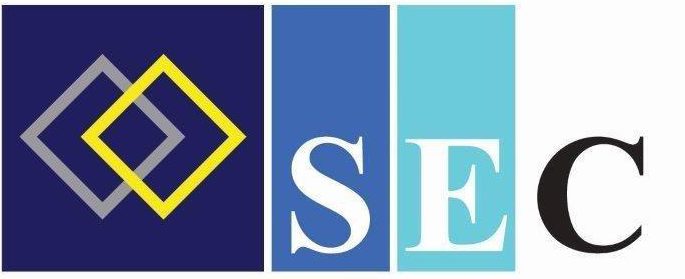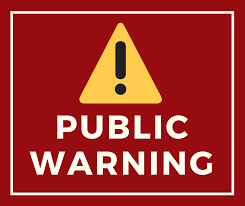A: A stock exchange is a market place where securities (mostly shares and bonds) are bought and sold. The members of the stock exchange trade in shares and bonds on behalf of their customers. When the buyers and sellers agree on a price for a share or bond, a trade is made and ownership changes hands. Many of us are familiar with the concept of ownership, whether we own land, cattle, a bicycle or a car.
A share simply means a portion of a business or company. Stocks and shares are the same. When you buy a share, you become part owner or shareholder of a business or company. This allows you to be involved in certain decisions regarding the future of the company.
When an individual becomes a shareholder he/she becomes a member of the company. Shareholding in a company gives an individual certain rights. Shareholders meet at Annual General Meetings (AGM) of the company where they can participate in important decision making on the running of the company. As a shareholder, you are also able to partake in the company profits. If the company makes a loss, shareholders may not have to pay any money into the company but the value of their shares may go down.
Shares that are traded on the stock exchange are normally referred to as stocks.
Companies sell their shares to the public for different reasons, which may include; access to finance/ capital raising, risk spreading, improvement in governance, share valuation, public policy, marketing, and so on. To do this, they might invite other people to become shareholders. Before a company applies to the Exchange which in our case would be the Lusaka Stock Exchange (LuSE) to be listed, it must comply with certain regulations including first registering their securities with the SEC.
You can buy shares for a number of reasons:
- Buying shares is a form of making a long term investment
- It is possible to increase one’s estate and thus improve one’s standard of living with the extra income you may earn from the profits of that company shared in form of dividends
- Shares become part of one’s assets and thus can also be used as guarantee/collateral when applying for a loan from a financial institution
- To become a part owner of a company or business and thereby take part in the company’s management activities
There are two ways of becoming a shareholder:
- By buying shares directly from a company when it first issues them through what is known as an Initial Public Offering (IPO).
- By buying existing shares already in public hands on the Stock Exchange through a SEC licensed broker
You can buy shares on the Lusaka Stock Exchange through a SEC licensed broker. Consult the SEC for a list of licensed brokers in Zambia.
A company that is listed on the LuSE is a public company whose shares can be bought and sold on the Stock Exchange. When you instruct a broker to buy shares on your behalf, you are sent a notification which shows:
- The number of shares bought
- The price per share
- The commission charged and
- The total amount paid
A flotation is the first public offering of shares in a particular open company. These shares are offered at a price determined to be the best they can be sold on the open market. The shares will be traded on the stock exchange to anyone who wants to buy them, thus enabling a wider share ownership.
Companies with good future prospects will be chosen for public flotation; this means only companies that have a sound capital investment base, good profitability both now and in future, and are well established with a market for their products.
Remember that you become an investor and part owner of a company when you buy shares. During good economic times a company may grow or decline during bad periods, the price of the shares may fall below what you paid for them and you have to bear this loss should you at any time decide to sell those shares. When your company grows and makes profit, you benefit through dividends received from the company and capital growth on the investments because the price of shares will increase. The decision to sell shares depends entirely on you and how you view the future performance of the company you have invested in. There is also a tax benefit because when you sell your shares, the government will not tax you. Compare that with the sale of property for instance, where you would pay tax at 10%.
Although the benefits in participating on the stock market vary, Zambian investors are protected by the Securities and Exchange Commission’s (SEC) extensive regulations as provided for in the Securities Act no. 41 of 2016. Every participant is therefore equally protected under these regulations
Share ownership is one way the market economy distributes wealth. Buying shares through a stock exchange means you are putting your money in developing resources for growth of wealth and creation of jobs and products. The shares of listed companies are the means through which individuals can invest in the nation’s future and participate in the growth and vitality of the economy.
Bid Price
The price buyers are willing to pay for shares
Dividend Yield
Dividend per share divided by price of a share paid by the shareholder (Dividend/Price) x 100
Earnings per Share
This is the profit due to each issued share in a company.
Investment House
Company whose sole business consists of buying, selling and holding shares
Listed Company
A company that has obtained permission for its shares to be admitted to the Lusaka Stock Exchange’s official list
Market Capitalization
This is the value the market places on a listed company found by looking at the total market value of all issued shares in a company. It could also indicate the amount of capital investors have placed in the hands of the company to fund the business.
Dividend
This is a payment to the shareholders of a company. It varies in amount in accordance with the profitability of the company and recommendations of the directors.
Offer Price
The price the seller wants for a share.
Price/Earnings Ratio
This ratio indicates how long it will take the investor to recover his/her investment through the earning per share. The higher the ratio, the more expensive the share.
Sales Price
The last price at which the trade was made.
Before you buy shares you must:
Look - Closely at your financial position. Do you have enough money for your everyday needs plus some readily available savings for emergencies? Consider also your age, assets, income, financial goals and how long you want to hold an investment then decide what kind of investment you want to make for the future.
Choose - A broker to buy and sell securities on your behalf. A broker will charge you commission for this service. Choose a broker who is licensed by the Securities and Exchange Commission so that you can be protected as an investor.
Assess – Critically the company whose shares you want to buy. Your decision to buy must depend on your review of the company’s future. The broker will help you consider the company’s earning history, dividends record and growth prospects as well as the state of its industry and economy as a whole.
Decide – How many shares to buy and what to pay. To do this, look at the current stock quotation with your broker which will give you a bid price and ask price. When you have decided, place your order through your broker who will send it to the LuSE to be executed. If possible, give a written instruction and keep a copy.
- Once you have bought shares, you must:
A regulatory sandbox is a framework set up by a regulator that allows FinTech startups and other innovators to conduct live experiments in a controlled environment under a regulator’s supervision.


